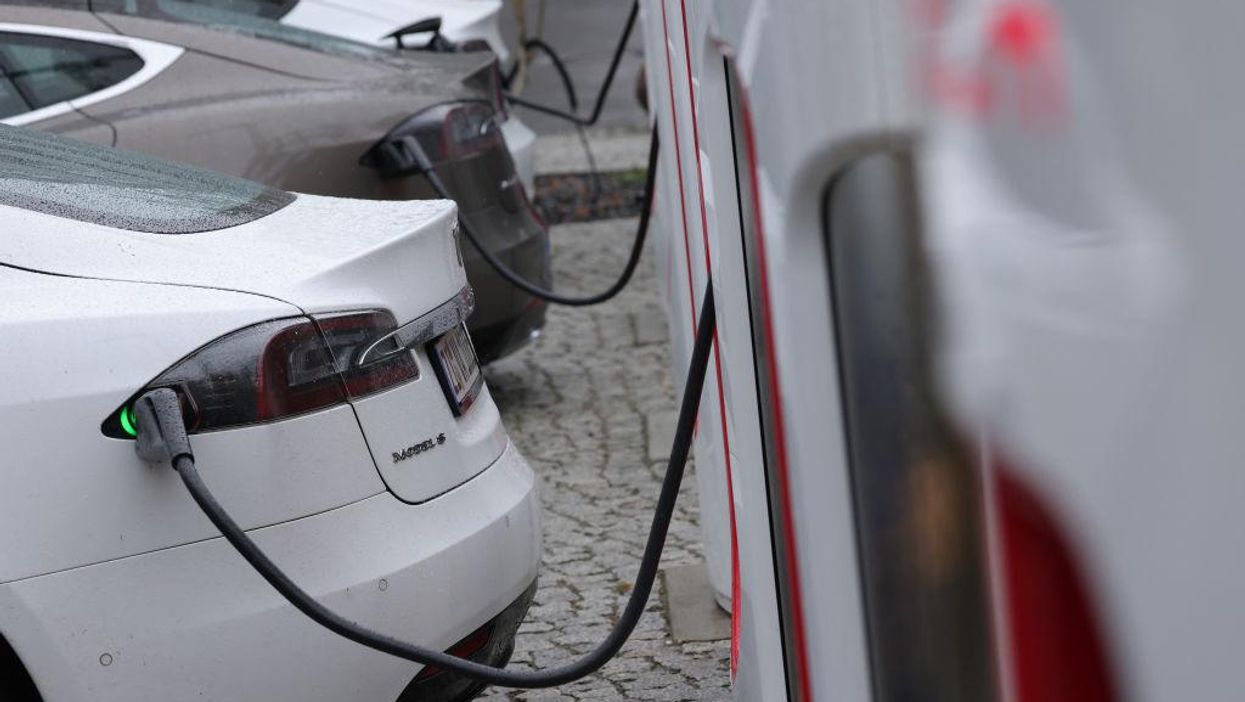
Sean Gallup/Getty Images

A new study is attracting widespread attention online by highlighting the surprising way in which electric vehicles are still pumping loads of climate-harming pollutants into the environment — and in many cases, at much higher rates than gas-powered cars.
The study, published recently by Emissions Analytics, a U.K.-based emissions testing firm, found that under normal driving conditions, particulate emissions from tires are an eye-popping 1,850 times greater than from a tailpipe of a gas-powered car.
The U.S. Environmental Protection Agency defines particulate matter as "solid particles and liquid droplets found in the air" that are "so small that they can be inhaled and cause serious health problems." Some are small enough to enter deep into the lungs and even soak into the bloodstream.
The particulate matter emitted from tires also pollutes the natural environment, as larger particles cover the ground while smaller particles float into the air. In fact, "Fine particles are also the main cause of reduced visibility (haze) in parts of the United States, including many of our treasured national parks and wilderness areas," the EPA notes.
The revelation raises a particular problem for EVs, which typically weigh significantly more than their gas-powered counterparts thanks to the heavy battery packs that allow for longer-distance driving. The more a car weighs, the greater pressure it puts on its tires, leading to more tire emissions.
"Half a ton of battery weight can result in tire emissions that are almost 400 more times greater than real-world tailpipe emissions, everything else being equal," Emissions Analytics claimed.
And the trend is heading in the wrong direction, so far as tire emissions go. EVs continue to get heavier and heavier as a result of consumer demand for longer travel times in between charges. Conversely, as newer cars have become more efficient, tailpipe emissions in gas-powered vehicles have decreased.
Researchers did note, "An important difference between tire and tailpipe particle emissions is that most of the former is understood to go straight to soil and water, whereas most of the latter is suspended in air for a period, and therefore negatively affects air quality."
However, the study determined that 11% of tire particulate emissions were small enough to go airborne. So, a significant amount of tire emissions still cause pollution in the air, poking a hole in the "zero emissions" claim touted by EV makers and green energy advocates.
Responding to the new study, Green Car Reports acknowledged that "as new cars get more efficient and EVs begin to make up a larger share of the fleet, the environmental impact of tire emissions will have to be addressed."
The EV outlet went on to note that in addition to particulates, another study from last year found that tires were a significant contributor to microplastic pollution, as well.
(H/T: Western Journal)